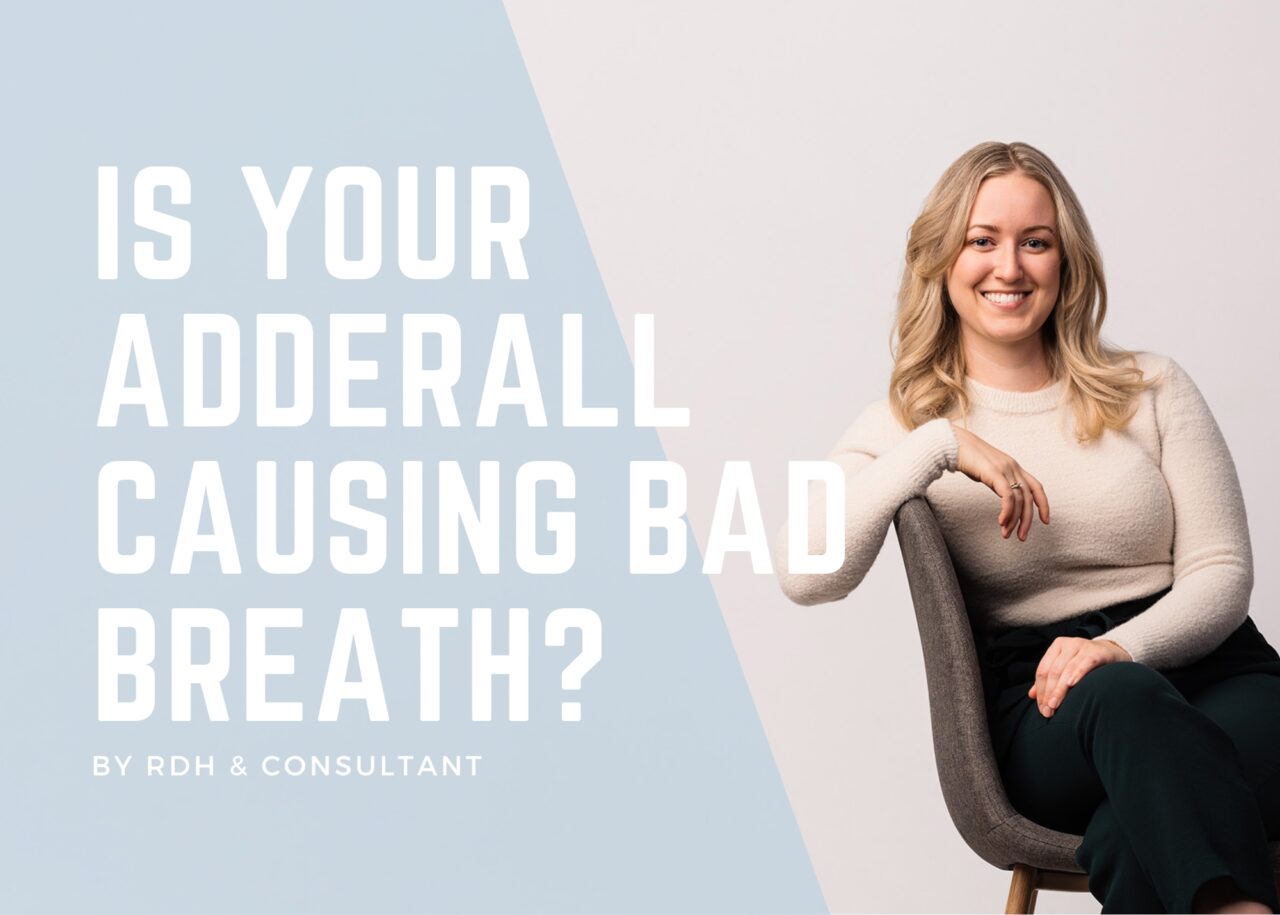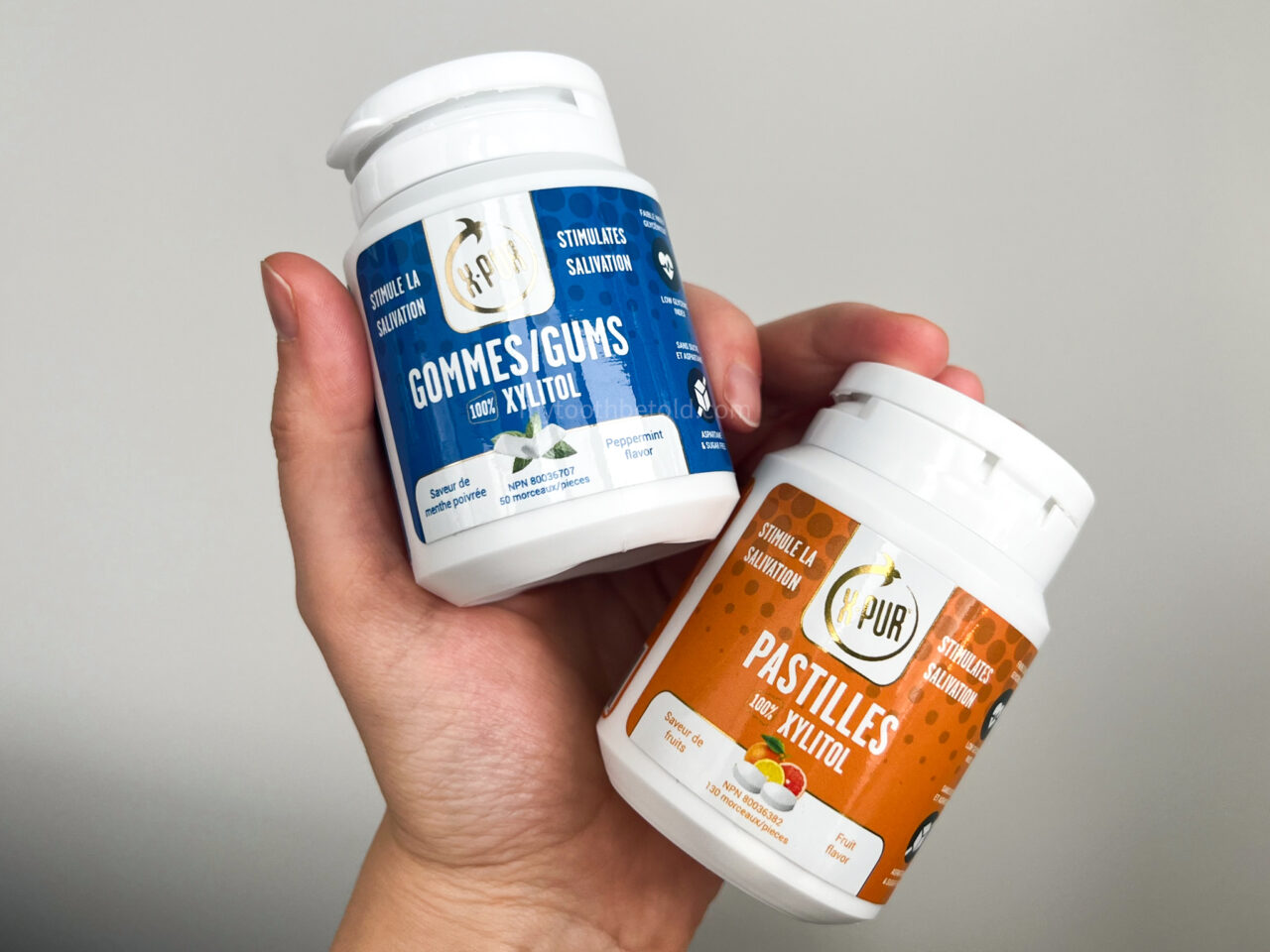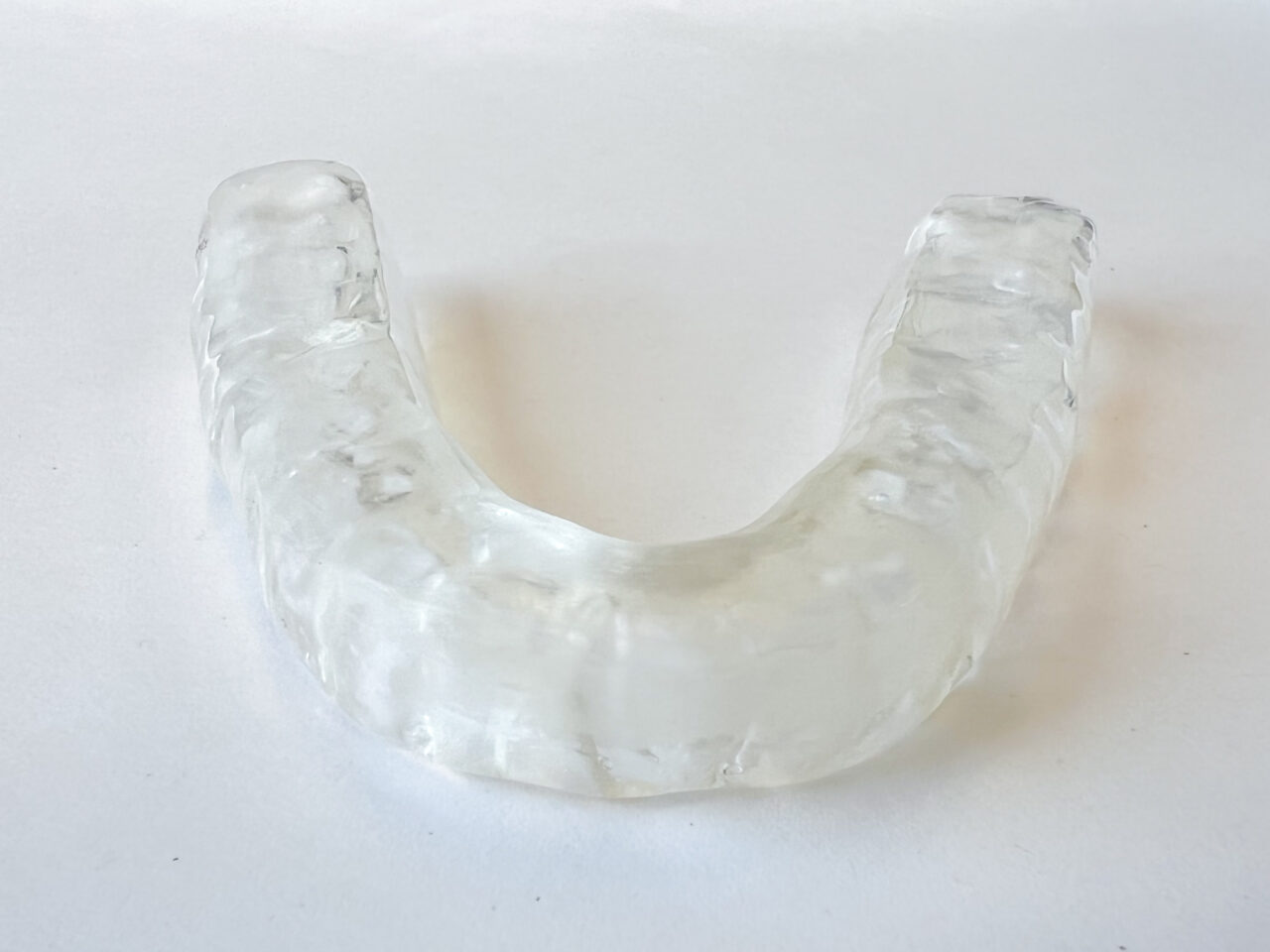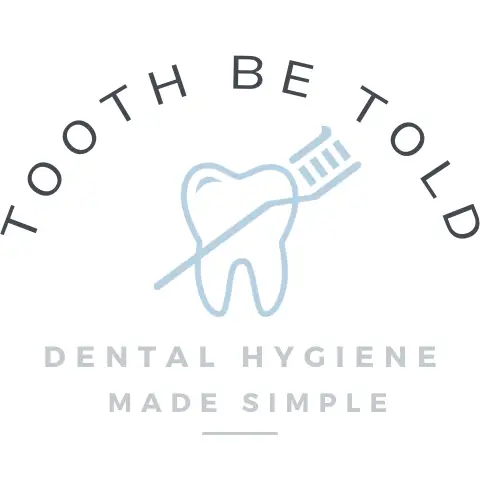
Bad breath is a problem almost every person will experience, either due to food and drink consumption, oral disease, or side effects of medications. Certain medications can contribute to bad breath, but is Adderall one of them?
Adderall induces bad breath if the medication causes dry mouth in the individual taking it. Dry mouth is a common side effect of Adderall, and due to the decrease in saliva production, the mouth has more bacterial accumulation, leading to bad breath.
In this post, I will explain why Adderall can contribute to bad breath, what oral issues can increase Adderall breath, and what to do about it. I also touch on other oral side effects Adderall can have that are often overlooked.
The unseen consequence of Adderall: How it can affect your breath
It all comes down to a dry mouth. A dry mouth is one of the most significant causes of bad breath.
Our saliva plays many vital roles, but the biggest, in my opinion, is rinsing away bacteria, food debris and acid and keeping the tissues moist.
Because Adderall contains central nervous system stimulants amphetamine and dextroamphetamine, it can contribute to less saliva produced by your salivary glands.
Say goodbye to Adderall breath: How to maintain fresh breath
When speaking to my patients taking medications that will contribute to dry mouth, I always ask them if they are experiencing dry mouth symptoms, and if they don’t notice, some other things may indicate the patient is suffering from dry mouth.
- Frequently thirsty
- Sticky tongue
- Cracked lips/corners of the mouth
- Mouth sores
- Increase in tooth decay
- Change in taste
- Lipstick sticking to teeth
- Difficulty swallowing or chewing
- Uncomfortable dentures
- Waking up during sleep to drink water
- Dry mouth when waking up from sleep
This is important because not everyone will experience these side effects, and medication dosages vary.
If you have bad breath, speaking to a dental professional and having a thorough examination is essential. Just because you are taking a medication that can contribute to bad breath does not mean the medication is the source of the bad breath.
Other issues could cause bad breath, such as gum disease, tooth decay, or infection.
Once your oral health has been assessed and treated, if need be, you can conclude that Adderall is causing bad breath.
Drink plenty of water to stay hydrated
Again, dry mouth is the biggest culprit of bad breath.
Trying to stay hydrated can be tricky (I try to set water intake goals), but in the end, it will help tremendously with rinsing away harmful bacteria and your body to produce saliva to help protect the mouth and prevent the bacteria that smell bad from accumulating.

Chew xylitol gum or suck on xylitol mints
Xylitol stimulates the salivary glands to produce more saliva. I recommend it to all my patients (who don’t have allergies or intolerances) who suffer from dry mouth or are at an increased risk of tooth decay.
Xylitol is a natural sugar alcohol, and the harmful bacteria in the mouth that cause cavities cannot be consumed. So, it starves out the harmful bacteria so they can’t reproduce as quickly, reducing the risk of decay.
It is important to remember that not all products are made equally or regulated to ensure they have the amount of xylitol to have a therapeutic effect.
X-PUR’s high quality medicinal grade xylitol is the only Health Canada approved product to stimulate saliva.
Here is the link to purchase it in Canada; https://en.boutique.oralscience.com/collections/x-pur-gums-pastilles/products/x-pur-gums-pastilles-100-xylitol-small-bottles .
.
In the United States, X-PUR is not distributed, but EPIC xylitol gum is, and it has the same amount of xylitol per piece of gum that the X-PUR brand does. Here is the link on Amazon. 
The product will not be as effective if there is not enough xylitol.
And because it stimulates the salivary glands, it is excellent for keeping the mouth moist and preventing bad breath.
Maintain consistent and good oral hygiene
Consistency is the absolute key to preventing bad breath.
The bacteria in the mouth are constantly reproducing, and keeping the number of bacteria to a minimum is essential.
If brushing and flossing are neglected, the bacteria will continue accumulating and negatively impact the mouth. I wrote a post on what happens if you don’t floss, which is linked below!
Read Now: What Happens if You Never Floss? Dental Hygienist Explains!
Avoid smoking, alcohol, caffeine, and salt
Smoking, alcohol, caffeine, and salt contribute to dry mouth by drying out the mouth or restricting saliva production.
Try to reduce use if you find your mouth is dry!
Use saliva substitutes
If you struggle with the amount of saliva in your mouth, you may need to use a substitute to lubricate your mouth.
There is too much information to include here, but I put together a resource page with the best products to help people who suffer from dry mouth! It is linked below!
Read Now: Dry Mouth Dental Must-Haves
Dealing with dental issues associated with Adderall usage (apart from bad breath)
Other oral health concerns can arise from using Adderall.
If you are experiencing them, it is necessary to be aware of them and discuss with your dental professional the best options for you.
Clenching and grinding, also known as “bruxism,” can occur.
Most often, bruxism occurs at night during sleep, so you may not even be aware that you are doing it.
Bruxism can lead to wear of the teeth, which leads to tooth damage, tooth sensitivity, decreased aesthetics, and lead to TMJ (temporomandibular joint) disorders.
Speak to your dental professional about bruxism, and if you know you are experiencing it or are showing signs, a dental nightguard may be necessary to protect your teeth and supporting structures. Grinding can also indicate issues with the airway or other root causes that should be investigated by your dentist/specialist.

Because Adderall is a stimulant, there are some reports from the ADHD community on Reddit that state some people’s personal experience with Adderall is contributing to acid reflux. Acid reflux can cause stomach acid to come up and enter the mouth and erode the teeth.
When the mouth is exposed to acid, the risk of tooth decay exponentially rises, and tooth sensitivity can also occur.
Severe acid erosion can lead to the teeth becoming much thinner and prone to chips, cracks, translucency and the appearance of more yellow teeth because the white enamel has eroded.
This study shows that people who suffer from acid reflux have a lower pH level in the mouth more consistently, increasing the risk for oral diseases.
I hope this information has helped you!
Have a great day,
Holly 🙂
